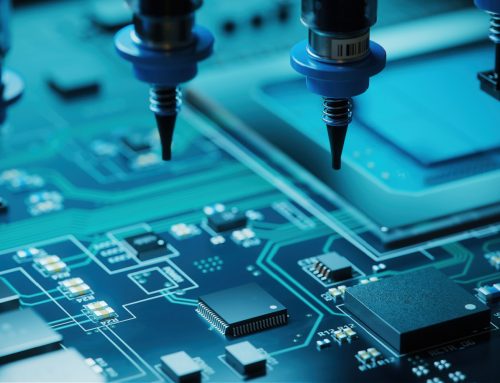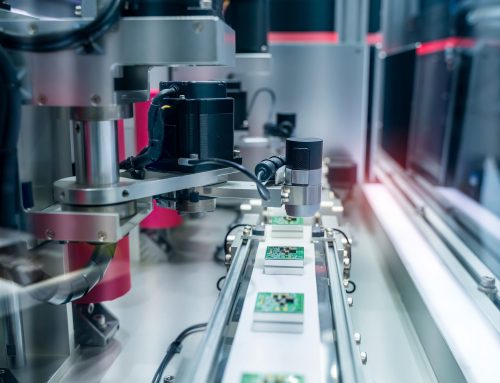The electronics manufacturing industry truly lived up to its innovative reputation in 2022, with the internet of things (IoT) prompting development in an already advanced landscape. The fact that this took place against the backdrop of widespread disruption in the wake of the pandemic illustrates the resilience of the industry, which shows no signs of wavering in 2023.
Original equipment manufacturers (OEMs) are still keen to gain an edge over competitors despite persistent challenges like the global chip shortage, and some common themes are already emerging.
The ever-worsening climate crisis and consumer demand are forcing manufacturers to produce more sustainable electronics products. Equally, the need to adapt to the rising cost of living and problematic supply chains have led manufacturers to adapt operations.
As a result, we can expect this year’s most significant technologies to advance even further. Here are the trends we predict will dominate the electronics industry in 2023.
1. 5G and 6G
Huge strides were made in the rollout of 5G this year. But it looks like even bigger ones will be taken in 2023 to ensure that its more powerful successor is launched soon, as India leads the way for the development of 6G connectivity.
With speeds up to 200 times faster than current standards, 6G is needed to support the electronics industry’s (and society’s as a whole) increased reliance on data — and the speed at which we transfer it.
We expect 6G to prove most beneficial in transportation — as 6G-connected automated vehicles gain enhanced communication and integrated sensing capabilities for more efficient fuel usage — and in manufacturing, where energy usage can be monitored (and limited) more accurately via 6G-enabled operations.
2. Smart technology
Data scientists are working on integrating smart features into even more everyday electronics, thanks to our demonstrated reliance on such devices during the pandemic and the continuation of flexible and remote working policies.
Smart offices will be the first to pick up speed in 2023, equipped with features such as smart access control, where smartphones will replace key fobs and cards for added convenience and lower costs — allowing businesses to save money without compromising security.
We will also see a rise in innovative, eco-friendly lighting solutions like human-centric lighting (HLC) next year. HLC can automatically adjust lighting settings based on factors like occupancy, ambient light levels and time of day, helping improve working conditions for increased productivity.
3. Digitisation and automation
Forward-thinking businesses used data to keep up with post-pandemic consumer habits this year, facilitating personalised online shopping experiences in retail and accurate, remote patient monitoring in healthcare.
In 2023, we can expect digitisation to continue, with more manual tasks being handed over to data-driven, automated machines. For instance, remote stock monitoring will allow manufacturers to keep track of product availability in real-time amidst supply chain issues and component shortages.
4. Machine learning
Modern electronics manufacturers at risk of falling victim to faulty or imitation components in the ‘grey market’ need to ensure they do not produce defective products.
Going forward, machine learning (ML) tools will help provide more accurate quality control by removing the risk of human error or complacency, leading to significant monetary and time savings and added supply chain resilience.
Although ML will streamline operations across the board, change will be most prevalent in the marine industry. Here, ML will help the computers powering autonomous vessels to make informed decisions about shipping routes and manoeuvres for improved collision avoidance, which will be instrumental to the widespread uptake of electric and hybrid ships.
5. Virtual and augmented reality
This year, augmented reality (AR) technology has extended to a broad range of industries (far past the gaming sector) as new, cutting-edge products hit the market. For example, immersive AR headsets have allowed surgeons to analyse 3D reconstructions of MRI and CT scans whilst reviewing surgical plans, streamlining workflows and making it possible to offer remote training on a wider range of human anatomy.
The AR and VR healthcare market is expected to expand at a compound annual growth rate of 30.2% until 2028, with some of the most significant developments expected in mental health treatment. In this sector, anxiety-inducing or PTSD-triggering scenarios can be recreated remotely in VR, a lower-cost alternative to in-person treatment, and headsets will be used to make prescribed exercises more engaging in rehabilitation.
6. 3D printing
The need for speed in today’s competitive electronics industry can be granted with 3D printing, which allows manufacturers to churn out prototypes much faster than traditional manufacturing methods. Moreover, 3D printing is incredibly efficient in terms of material usage, meaning waste is kept to a minimum — a considerable benefit when supply chain issues have caused shortages across the board.
OEMs will also be drawn to 3D printing for its ability to facilitate customised products (which there is a growing need for across all industries).
One of the key factors driving the anticipated £26.2 million ($31.8 million) market revenue by 2023 is the demand for low-volume production and lightweight products in parts of industrial electronics, including aerospace and defence.
7. The internet of things
Finally, the mass growth of the internet of things (IoT) market will continue well into next year as businesses continue to leverage it to find better ways to utilise and manage data.
As a result, OEMs across all sectors — from healthcare and security to automotive and transportation — can expect increasing customer demand to incorporate IoT-connected sensors into all sorts of devices.
We keep our finger on the pulse of the electronics industry to ensure we provide the most up-to-date electronics manufacturing services. To discuss how we can help with your next project, contact us at +44 (0)1256 461894 or email sales@ecelectronics.com.









